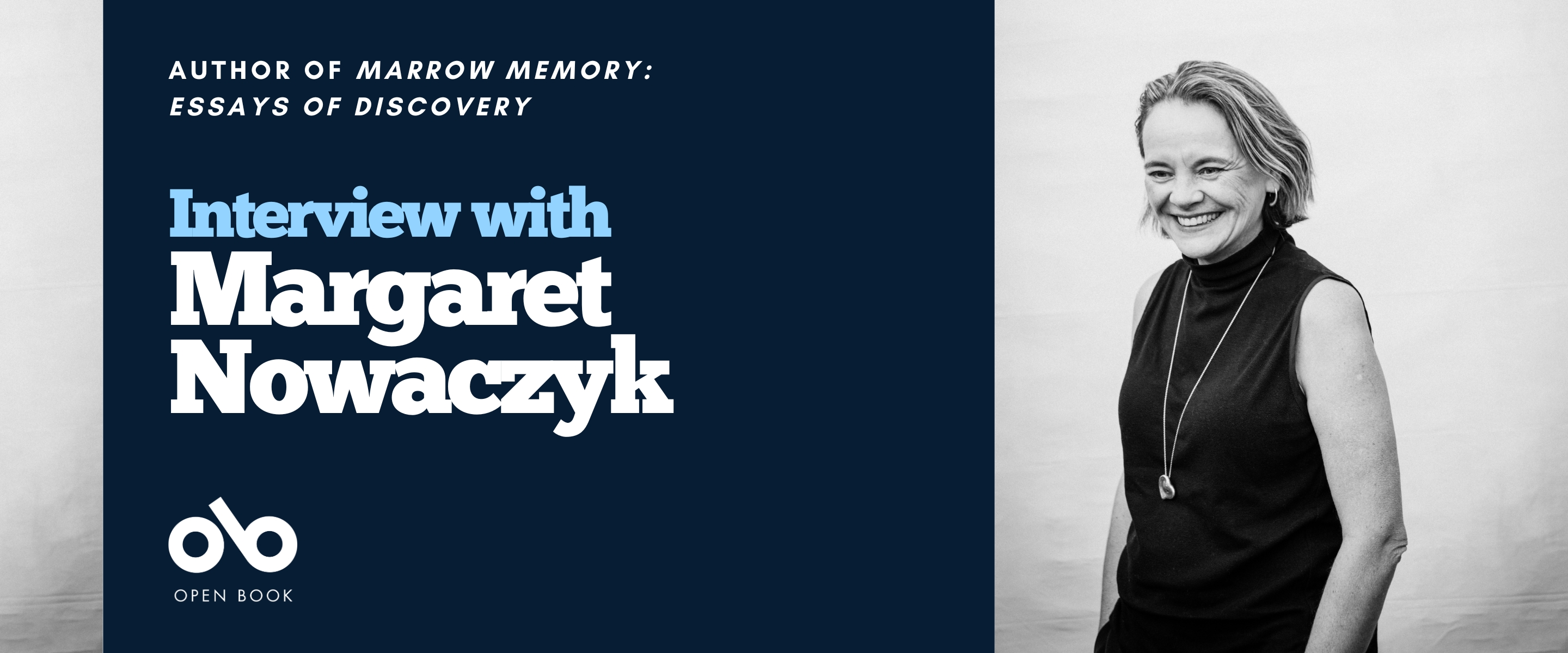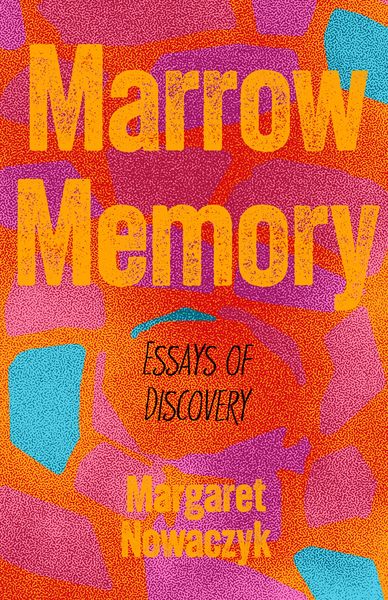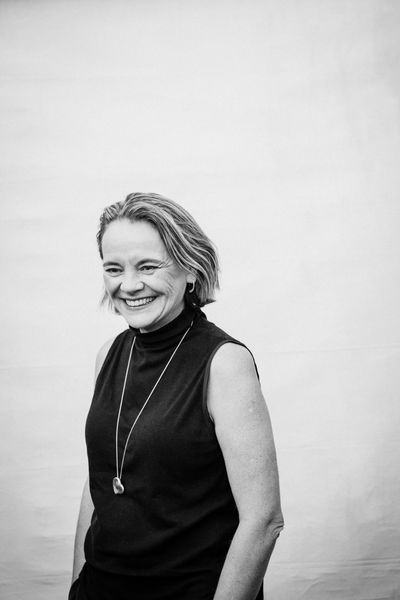Margaret Nowaczyk Explores the Unexpected Beauty of Being Human in Marrow Memories: Essays of Discovery
In Marrow Memory: Essays of Discovery (Wolsak & Wynn) Margaret Nowaczyk looks deeply at her own life, and the memories and experiences that she has had. Whether those are of a childhood in Communist Poland, or as a pediatric clinical geneticist, these reflections are profound and moving and show the reader glimpses into what it means to be human.
Currently working in both short fiction and essay form, the author displays a deft hand in her lines and a seamless shift between scientific and personal writing, which all fits so naturally together in these collected essays. She uses her considerable skills and knowledge to draw the reader into these small marvels and invites them to ponder the beauty of our unique lives, each and every one.
We're very happy to delve into this wonderful collection today on Open Book, and to share this True Story Nonfiction Interview with the author:
Open Book:
Tell us about your new book and how it came to be. What made you passionate about the subject matter you're exploring?
Margaret Nowaczyk:
“Marrow Memory” is a collection of essays that have been written over twelve years under varied circumstances: for magazine submission calls, for CNF contests, as an application for and exercises in my MFA program, but always from a desire to understand the topic matter at the piece’s heart. Whether debating the merits of dyeing my hair or of various laundry methods, being mesmerized by a painting or a poem, narrating early experiences in Canada and in the English language, or recounting sexual abuse, I always strove for the deepest meanings and truths. In doing so, I unearthed several obsessions/passions that have played a big part in my life. These are: the (un)reliability of memory – a very important question while writing a memoir or essays based on one’s life; the effects that painful experiences and trauma and ancestral legacies have on our minds and bodies; and the role language plays in our lives and what happens when you lose that language. I explore these themes in my essays both in pieces devoted expressly to those topics and, peripherally, in other essays in the book.
OB:
Is there a question that is central to your book? And if so, is it the same question you were thinking about when you started writing or did it change during the writing process?
MN:
The overarching questions of how we effect our memories and how our memories affect us became apparent only when the collection was taking shape. Here, I must shout out for book editors! Because without mine’s keen eye and editorial sense, “Marrow Memory” would have never materialized. Originally, I submitted nineteen essays to Noelle Allen, the non-fiction editor at Wolsak & Wynn, and, immediately, she thought six were redundant or repetitive. I needed to write four new full-length essays which, without any conscious planning on my part, ended up exploring memory and ancestry. Then, I found two very old essays in the depths of my laptop that, surprisingly, also dealt with similar themes, so I polished them and Noelle added them to the collection. Thus, the book’s theme grew organically without my noticing it. When Noelle suggested “Marrow Memory” (a title of one of the essays) as title for the whole collection, it rang so true, I was speechless! Noelle was also responsible for the order of the essays: somehow, she managed to arrange them in such a way that there is an arc from the very first essay I have ever written to the final piece that landed the “So nice to meet you” ever so perfectly, and brought the whole collection to a satisfying close.
OB:
A lot of nonfiction prizes and anthologies have expanded to welcome more personal nonfiction as well as strictly research-based nonfiction. What do you think of this shift within the genre?
MN:
I am partial to the lyric essay and other, more artistic forms of creative non-fiction such as list essay, braided essay, or hermit-crab essay. I do not write fact-driven non-fiction, but rather emotion- and experience-laden non-fiction, a very personal type of written exploration. As such, I am thrilled that these forms are receiving wider acceptance and recognition. And awards.
Your CanLit News
Subscribe to Open Book’s newsletter to get local book events, literary content, writing tips, and more in your inbox
OB:
What does the term creative nonfiction mean to you?
MN:
Beautifully told truth. Beautifully, as in using the literary techniques of description, dialogue, metaphor, poetry, and lyrical language. Truth, as in factually accurate stories that can be verified and corroborated. To the latter, I would add conjectures (thought up facts that cannot be verified but are nevertheless a part of the process of writing) and hypotheses (ditto), both of which are an important part of writing creative non-fiction as long as they are identified as such.
OB:
Do you remember the first moment you began to consider writing this book? Was there an inciting incident that kicked off the process for you?
MN:
I wasn’t so much the moment of beginning writing as a moment of beginning assembling. I had a number of essays scattered around, some published, many not, when I joined an online community titled “Craft Your Collection.” It was run by Nicole Breit, a talented writer and excellent educator who had previously coaxed some very difficult truths out of me in the form of essays. I thought her program might be helpful in organizing my essays into a coherent and cohesive whole and it was!
OB:
What are you working on now?
MN:
For the last ten years, in parallel with my non-fiction writing, I have been working on short stories – fiction, that is. I have published several of them in literary magazines and have been polishing a collection for submission for publication. In terms of non-fiction, I am exploring memories about my father with the view of possibly writing a memoir about him – “Tato” in “Marrow Memory” started me on that path. I have also been pondering the experience of immigrant shame with the eye to exploring that theme further in an essay or a longer work.
________________________________________
Born in Poland, Margaret Nowaczyk is a pediatric clinical geneticist and a professor at McMaster University and DeGroote School of Medicine. Her short stories and essays have appeared in Canadian, Polish and American literary magazines and anthologies. She lives in Hamilton, ON, with her husband and two sons. Visit her website at www.margaretnowaczyk.ca.






